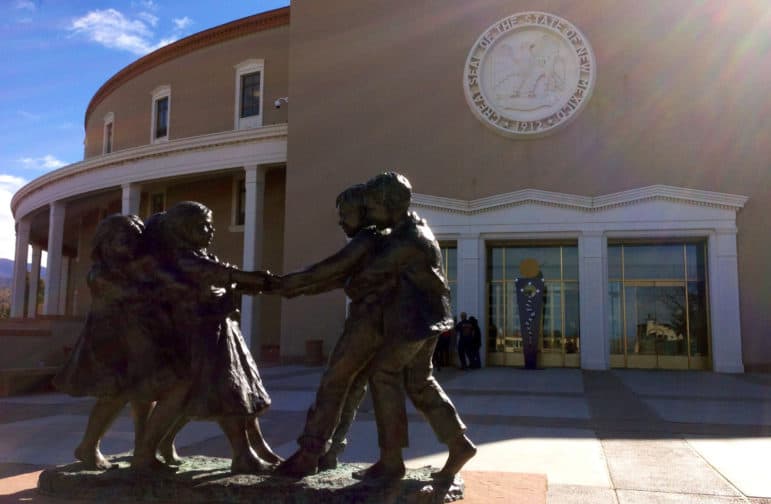
Heath Haussamen / NMPolitics.net
The Department of Health backs the measure and sees it as a way to vastly expand the use of naloxone, known by the trade name Narcan, to rural and underserved parts of the state.
With the Legislative session ending Thursday, a bill to expand the use of a powerful drug to reverse opioid overdoses is still waiting for a final vote on the Senate floor.
House Bill 277, sponsored by Rep. Terry H. McMillan, R-Las Cruces and the only physician serving in the Legislature, would allow for possession of an opioid antidote under a standing prescription order instead of mandating that drug users and family members have a direct consultation with a physician or a pharmacist.
The bill needs support from the full Senate before moving onto Gov. Susana Martinez for her signature. It unanimously passed the House Health and Judiciary committees and gained passage in the House with a 66-0 vote.
It also earned a unanimous do-pass recommendation from the Senate Judiciary Committee. It was set for consideration by the Senate on Tuesday, but the body did not get to the item before adjourning for committee work.
The Department of Health backs the measure and sees it as a way to vastly expand the use of naloxone, known by the trade name Narcan, to rural and underserved parts of the state.
Currently, there are no naloxone providers south of Albuquerque.
“The bill would allow DOH to register qualified partner organizations in Southern New Mexico and other underserved areas in order to ensure effective community-wide prevention of overdose deaths,” the health department wrote in a bill analysis.
“By providing greater access to opioid antagonists like naloxone, paired with education and information on opioid overdose prevention and naloxone administration, some of these disparities may be reduced,” the analysis states. “This is particularly important in rural areas with limited access to healthcare providers.”
New Mexico’s overdose death rate is among the highest in the United States and spiked 20 percent in 2014, with 547 fatalities. Half of those deaths are considered opioid related.
To combat the epidemic, the Department of Health distributed a total of 5,874 doses of naloxone, a 55 percent increase from 2013. In 2014 about 1,700 new people were trained in the use of naloxone kits.
But the program has been curbed in part because of an ambiguity in state law about who can distribute naloxone.
The change would not only help organizations such as homeless shelters and social-service agencies, but also law enforcement.
Increasingly, first-responders such as deputies with the Santa Fe Sheriff’s Department have been trained to administer naloxone to those with symptoms of an overdose. But it is unclear if first responders can leave a naloxone kit with a family member or friend of the overdose victim for later use.
HB 277 would clarify the ambiguity so any licensed prescriber can write a standing order so any trained staff or volunteer can distribute naloxone kits.
During the House hearing, McMillan emphasized that naloxone is safe and should be a a staple item in medicine cabinets.
Another bill aimed at providing for more overdose counseling by physicians failed Tuesday in the House Health Committee.
Senate Bill 100, sponsored by Sen. William P. Soules, D- Las Cruces, would have required health care providers prescribing opioid pain medicine for the first time to counsel patients about overdose risks and provide a prescription for naloxone, if appropriate.
Soules said the bill was voted down on a 5-5 vote because physicians were concerned about possible liability.
“There was a concern if a doctor failed to do this, lawyers would be lined up to sue,” he said. “It’s a simple thing that will help save lives and it got caught up in politics.”
Contact Bruce Krasnow at brucek@sfnewmexican.com.